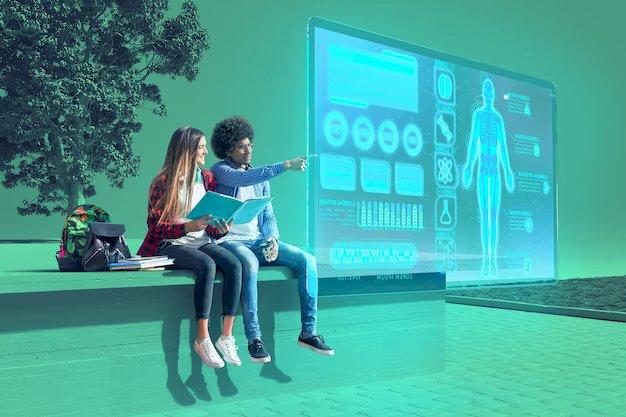AI in Education: Personalized Learning and Beyond
Explore how AI is revolutionizing education by providing personalized learning experiences, enhancing student engagement, and streamlining administrative tasks. Discover the future of education with AI and its potential to improve student outcomes.

Introduction
Education is undergoing a remarkable transformation, thanks to the integration of Artificial Intelligence (AI). From personalized learning experiences to enhancing administrative tasks, AI is revolutionizing the way students learn and educators teach. In this comprehensive guide, we'll delve into the role of AI in education, exploring its impact on personalized learning, student engagement, and administrative efficiency. Discover how AI is shaping the future of education and improving student outcomes.
Chapter 1: The Promise of Personalized Learning
Personalized learning tailors education to individual student needs:
-
Adaptive Learning: AI analyzes student performance and adjusts the curriculum in real-time to match their pace and abilities.
-
Customized Content: AI recommends learning materials and resources based on each student's learning style and progress.
Chapter 2: AI-Powered Educational Tools
AI tools are transforming the classroom:
-
Intelligent Tutoring Systems: AI tutors provide students with immediate feedback and additional support in subjects like math and language.
-
Language Learning Apps: AI-powered language learning apps help students practice pronunciation and grammar.
Chapter 3: Enhancing Student Engagement
AI engages students in new and exciting ways:
-
Gamification: AI incorporates gaming elements into educational content to make learning more engaging and fun.
-
Virtual Reality (VR) and Augmented Reality (AR): AI enhances immersive learning experiences, allowing students to explore historical sites or participate in virtual science experiments.
Chapter 4: Teachers as Coaches
AI aids educators in providing personalized support:
-
Data-Driven Insights: AI analyzes student data to identify struggling students and helps teachers offer timely interventions.
-
Lesson Planning: AI helps educators create tailored lesson plans and assess their effectiveness.
Chapter 5: Administrative Efficiency
AI streamlines administrative tasks for educational institutions:
-
Administrative Automation: AI automates administrative tasks like enrollment, scheduling, and grading, reducing administrative burdens.
-
Data Analytics: AI processes institutional data to improve resource allocation, budgeting, and strategic planning.
Chapter 6: Ethical Considerations in AI Education
The use of AI in education raises ethical concerns:
-
Data Privacy: Safeguarding student data is crucial to protect privacy and comply with regulations like GDPR.
-
Bias in Algorithms: Ensuring AI algorithms are fair and free from biases is essential to prevent discrimination.
Chapter 7: The Future of AI in Education
AI's future in education is promising:
-
Lifelong Learning: AI will facilitate continuous education and skill development throughout one's career.
-
Global Access: AI-driven education platforms will provide equitable access to quality education worldwide.
Conclusion
AI is transforming education by offering personalized learning experiences, enhancing student engagement, and improving administrative efficiency. As AI continues to evolve, its role in education will become even more critical, helping students of all ages and backgrounds access high-quality education tailored to their needs. However, it's essential to navigate ethical considerations carefully and ensure that AI technology is used responsibly to protect student privacy and promote fairness. The future of education is AI-driven, promising a world where learning is accessible, engaging, and customized for every learner, ultimately improving student outcomes and preparing them for the challenges of tomorrow.

 bloggeramar
bloggeramar 































